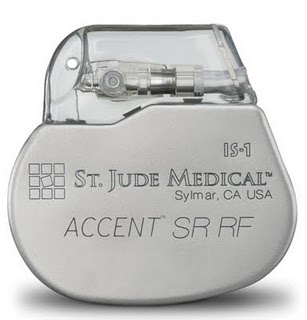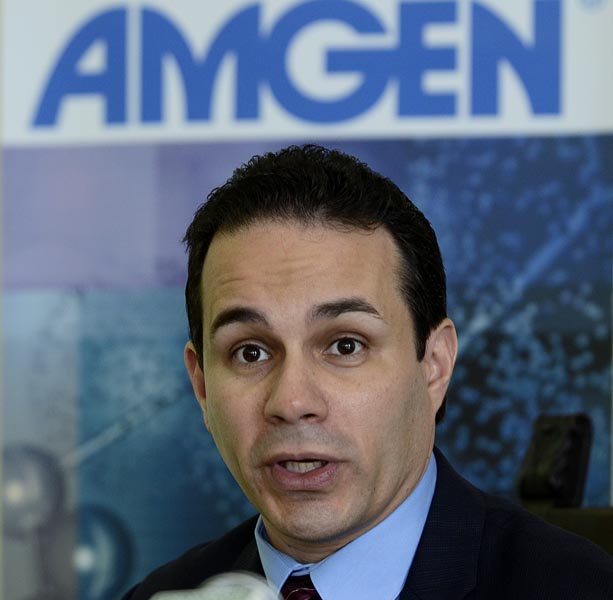2 major manufacturers say effects of P.R. 4% excise tax ‘positive,’ pay combined $20M in 1Q


St. Jude Medical, which makes pacemakers and other health-care devices in Puerto Rico, paid $7 million related to the temporary 4% tax during the first quarter of 2011. (Courtesy: St. Jude Medical)
Two major manufacturing plants employing more than 2,000 people on the island paid a combined $20 million to the government of Puerto Rico during the first quarter, related to the recently effected 4 percent excise tax on foreign corporations.
However, high-ranking executives from St. Jude Medical and Amgen noted that because the tax can be written off as a federal tax credit, they were able to reduce their corporate tax rates.
St. Jude Medical told shareholders Wednesday that the recently enacted 4 percent tax on foreign corporations effected in January represented a $7 million expense in the first quarter of 2011.
However, the company also said during its earnings call that the additional expense “is almost entirely offset by a corresponding $6 million tax benefit reflecting the tax credit available in the United States related to the Puerto Rico excise tax,” said John Heinmiller, executive vice president and CFO for Minnesota-based St. Jude Medical.
Heinmiller noted that given that it can virtually write off the entire amount, the tax “did not affect earnings per share” during the first quarter.
The company reported the tax under its “other expenses” category. St. Jude estimated that in 2011, it will pay $28 million to the Treasury Department as a result of the temporary tax that went into effect in January.
For the first quarter, St. Jude’s income tax rate was 22 percent, including the local tax. The company reported global sales for the quarter of $1.3 billion, up approximately 9 percent over the $1.2 billion reported in the first quarter of last year.
“As mentioned, the Puerto Rico excise tax is reported in other expenses while the offsetting federal income tax credit is reflected as a reduction to income tax expense,” Heinmiller said. “For 2011, we now expect the tax rate to be in the range of 22 percent to 22.5 percent, which reflects the financial statement presentation reporting the Puerto Rico excise tax in other expense.”
St. Jude Medical began operating in Puerto Rico nearly 25 years ago, when it first opened a plant in Caguas to manufacture medical heart valves and Angio-Seal vascular closure devices. It employs 500 people there.
Three years ago, the company opened a second plant, moving into the former 150,000 square-foot Guidant facility in Arecibo’s Santana Industrial Park. The company pumped $40 million into it to launch production of cardiac rhythm management devices, such as pacemakers and pacing leads. That plant employs another 700 people.
Amgen: Tax positively impacts results
Meanwhile, in its quarterly report, pharmaceutical company Amgen said its overall financials were “positively impacted” by the 4 percent excise applicable to its Juncos operations, despite having to shoulder a $13 million expense.
“This excise tax is accounted for as a manufacturing cost that is capitalized in inventory and expensed when the products are sold,” said Amgen in its quarterly report. “For U.S. income tax purposes, a significant portion of the excise tax results in a foreign tax credit that is recognized when the tax is paid.”
“This difference in the timing of recognizing the expense and the applicable tax credit positively impacted the first quarter of 2011 financial results,” the company noted, adding that its adjusted tax rate for the first quarter was 16.6 percent compared with 20 percent for the first quarter of 2010.
The decrease was due primarily to the recognition of foreign tax credits associated with the new Puerto Rico excise tax effective in 2011 by the Internal Revenue Service, the company noted.
“This is accounted for as an addition to our manufacturing costs. It’s capitalized in inventory and expensed as the product is sold,” said Amgen’s CFO Jon Peacock, during Amgen’s first-quarter 2011 financial results conference call early Wednesday. “As a result, our adjusted tax rate is lower by the amount of the foreign tax credit. While as outlined above, a significant proportion of the tax paid will be expensed in future periods when the product is sold out of inventory.”
But while high-ranking officials said the tax lowered its overall federal corporate tax rate, a company spokeswoman said it still hurt its competitiveness by increasing the cost of producing goods on the island that could be produced elsewhere.
“The new excise tax undermines the credibility of the commitment of the government to its obligations by altering reasonable, investment backed expectations by companies committed to the economic strength of the island,” said Christine Regan, spokeswoman for Amgen’s corporate communication division.
The government is looking to collect about $1.2 billion a year for the next six years through the 4% excise tax. With that money, the Gov. Luis Fortuño administration will float the tax reform it implemented in January, which provides relief to individuals and small businesses on the island.









